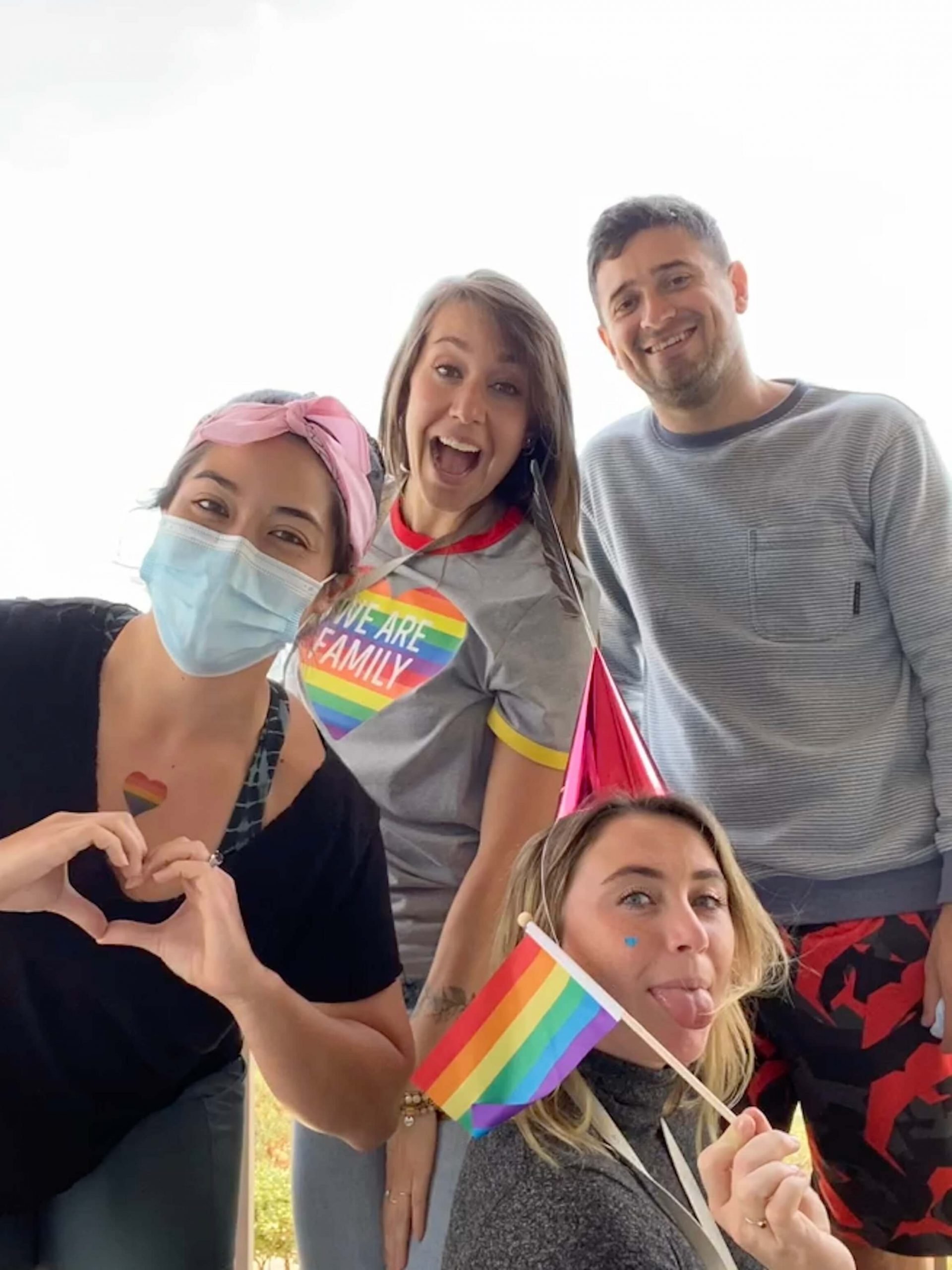5 Ways To Grow as an Ally During LGBTQ Pride Month (and beyond!)

To grow as an ally you must be willing to listen, be present, and rumble with discomfort. (Plus, here's a reading list)
June is Pride month. There are various events throughout Pride month, including celebrations and memorials of people in the LGBTQ+ community who have lost their lives to hate crimes or HIV/AIDS. June is a time to recognize and celebrate the people who make up the LGBTQ+ community.
Still, our community still experiences prejudice. And the only thing you really need to grow as an ally for our LGBTQ community is to be willing to keep trying.
Let’s explore five basic ways to grow as an ally not only during pride month but all year long.
How to grow as an ally
Stay curious and Listen Well
To grow as an ally, there’s nothing more important as the ability to really listen without making assumptions.
The LBGTQ+ community comprises all kinds of people, each with their own unique strengths, worries, and obstacles. While it’s good to become more familiar with this community and the challenges faced by its members, it would be problematic to paint them all with a broad brush.
Sexuality describes only one aspect of a person’s identity and life, and it can be hurtful and invalidating to be labeled based on that one aspect alone.
Always approach people with curiosity and openness, without assuming you know their story. Being a good listener means being open, present, and attentive. It’s not about waiting for someone to validate your assumptions about their story. Assumptions create barriers to quality communication and connection.
Become a better listener
If you’re going to be an ally, you need to know when to listen. It isn’t helpful for someone to enter a space with LGBTQ+ folks and talk more than they listen or talk about their feelings or beliefs.
Part of good allyship is knowing how to listen to the different perspectives of LGBTQ+ people. First, listen and take in what other people have to say. Then, before you speak, take time to process what you’ve heard and your feelings about it. This can help you speak from a place of openness and compassion rather than discomfort. This leads to our next tip…
Lean into discomfort
There might be something that makes you uncomfortable about lesbian, gay, bisexual, or transgender experiences as you take steps to learn more. But comfort is not required for learning. It’s in this zone of discomfort that many of us do the most growing!
So remember: Discomfort isn’t a sign that a conversation has failed or that what you’re hearing isn’t acceptable. Discomfort, in this case, might just be growing pain as you lean in with curiosity and compassion.
Own your bias
Unfortunately, there’s a lot of prejudice for people in the LGBTQ+ community. We’re all influenced by our environment. As children, we are like little sponges that absorb everything. We learn about what’s okay and what’s not. These beliefs become deeply rooted in our view of ourselves, others, and the world.
Sometimes what happens is that we’re not even aware of the beliefs that we hold in our unconscious mind. Like seeds, our unconscious beliefs lie underground until they sprout and influence our behaviors. Confronting your prejudice allows you to dig up those beliefs, examine them, and replace them with more realistic, affirming beliefs.
Here are some book and podcast recommendations that can help get you on your way!
Resources for parents
It can be good to confront any beliefs you have about LGBTQ+ people, whether you are raising a child who identifies in this way or not. This can help you support your child in their sexuality or support you in raising an ally. Here are some books and podcast recommendations:
- The Savvy Ally: A Guide for Becoming a Skilled LGBTQ+ Advocate by Jeannie Gainsburg
- This Book is Gay by Juno Dawson
- Listen, Learn, & Love podcast by Richard Ostler
Resources for therapists
- LGBTQ Clients in Therapy: Clinical Issues and Treatment Strategies by Joe Kort
- Sex Outside The Lines by Chris Donaghue
The American Association of Sexuality Educators, Counselors, and Therapists provides continuing education courses. In addition, there are specific courses for understanding LGBTQ+ sexuality and how to be affirming.
Use your voice
Speak up if you hear or see someone doing something harmful for the LGBTQ+ community. Whether they mean to be hurtful or not, it’s essential to speak up. It’s never the marginalized people’s job to educate others. That’s an extra layer of harm that only benefits straight and cisgender people.
Allys can help through advocacy. Advocacy can take place in conversations with friends, family, or coworkers if you hear something prejudiced. Advocacy may also look like showing up to marches or demanding legislative change at the local, state, or federal level. There’s a lot of ways to speak up.
This post is by no means the end-all-be-all of how to be an ally. This is just a starting point. If you are straight or cisgender, learning how to be an ally isn’t an overnight process. It might take some time, and that’s okay.


Live Chat with a compassionate counselor now.

FREE ED Assessment Survey
Confused by ED signs and symptoms? This resource is for you.
Our Recommended Articles
Start the road to recovery with Alsana.







